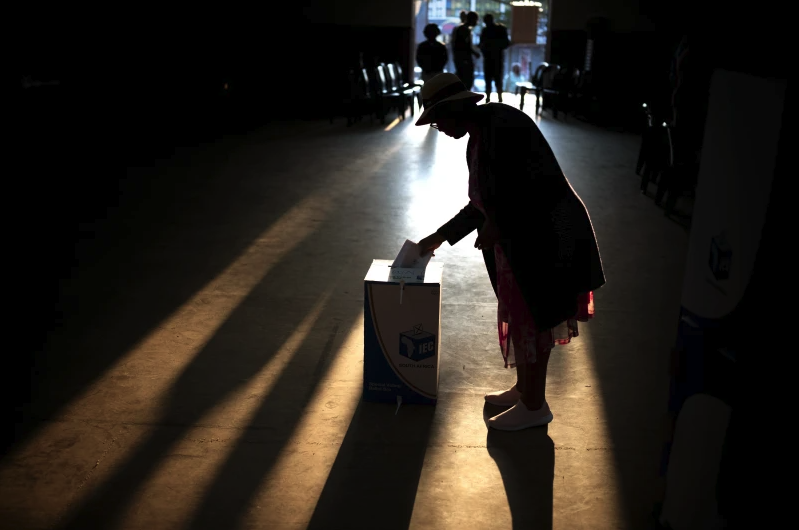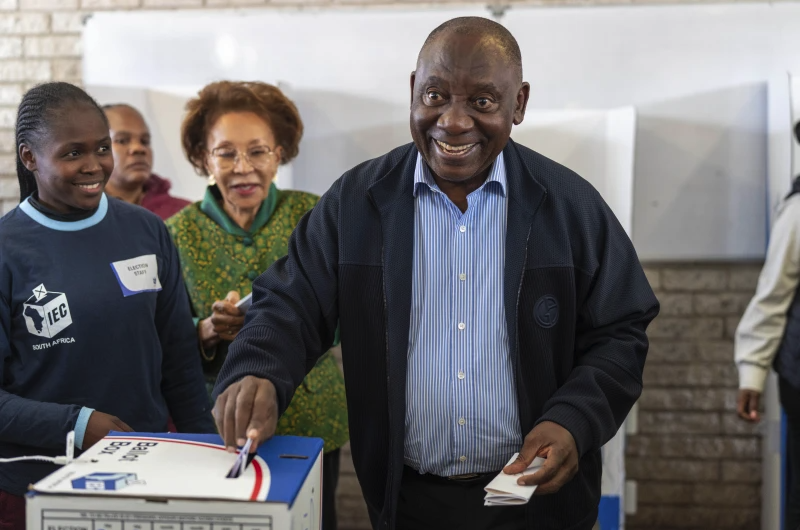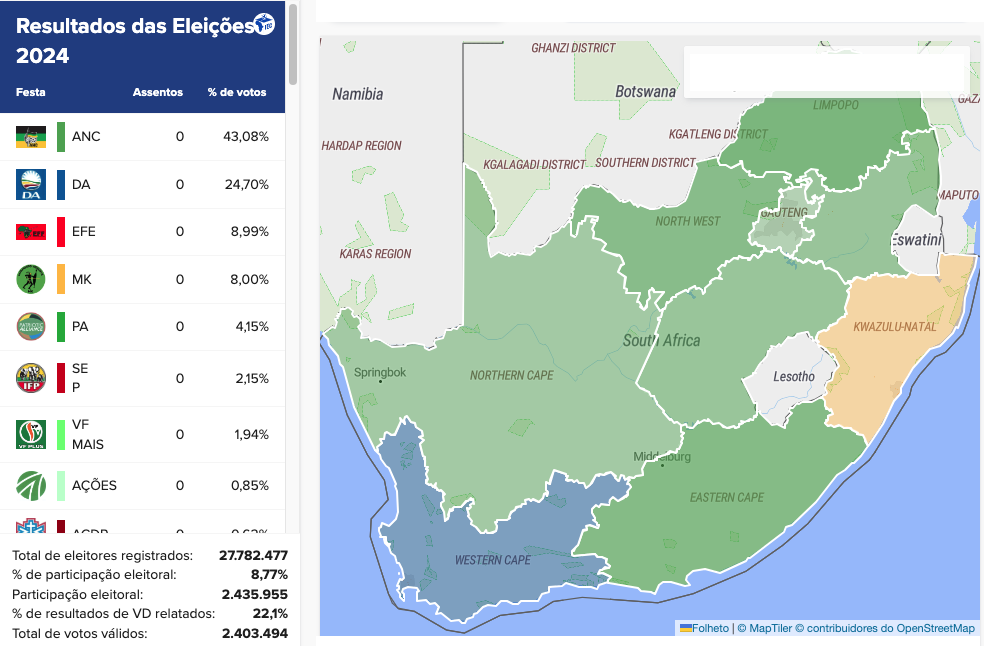
Published 05/30/2024 12:37 | Edited 05/30/2024 13:29
Partial results from South Africa’s national elections indicate a possible historic shift, with the African National Congress (ANC), which has governed the country since the end of apartheid in 1994, receiving less than 50% of the vote for the first time. With around 20% of ballots counted after Wednesday’s vote, the ANC was on 43% of the vote, raising the possibility of losing its absolute majority in Parliament.
The counting process is still ongoing, with the Independent Electoral Commission (CEI) expected to deliver the final results by Sunday (2). However, it is possible that the results will be released before then. Despite this, projections indicate that the CNA has lost support in the nine provinces. As a result, he would have to join forces with other parties to elect the president.
Voter turnout was projected at 70%, up from 66% recorded in the 2019 national elections. In the last elections, the ANC won 57.5% of the vote, a declining performance. The current election is seen as a referendum on the ANC’s three decades of rule, which freed South Africa from the oppressive and racist apartheid regime but has faced a decline in popularity over the past 20 years.
The wear and tear is natural, as the history of apartheid moves away from the new generations, who demand deeper and more accelerated changes in a country that faces difficulties resulting from high inequality of wealth, still concentrated in the hands of the white minority. The press, as well as opponents and social media are exploring the wear and tear of scandals involving historic ANC leaders, who are leaving for independent political careers. The spread of fake news also contributes to attacks on the government. The party tries to survive by highlighting its achievements and social advances in government, which no longer seem to impress the majority, as inflation, unemployment and violence increase.
The long queues of voters in major cities such as Johannesburg and Cape Town, which stretched late into the night, reflected the determination of South Africans to participate in this crucial process. The high voter turnout and waiting in lines until the early hours of the morning suggest that many citizens understand the importance of this election for the future of the nation.
O President Cyril Ramaphosa voting:

The challenges of the CNA
South African president and ANC leader Cyril Ramaphosa expressed confidence after Wednesday’s vote, saying he still expects a “firm majority”. Nomvula Mokonyane, the party’s deputy general secretary, remained optimistic in an interview. However, the opposition is fragmented between several parties, which could still result in the ANC being the largest party but needing a coalition to maintain government.
In any case, analysts assess that the first results indicate a “major change in South African politics”. The loss of the absolute majority by the ANC would mean the need to form coalitions, something unprecedented since the party came to power with Nelson Mandela.

The partial results put the main opposition party, the Democratic Alliance, with around 25% of the vote, and the Economic Freedom Fighters with around 8%. The new MK Party, formed by former president Jacob Zuma, has also shown a significant impact, emerging as the fourth largest force in initial counts.
Zuma’s uMkhonto weSizwe (MK) party is likely to become the biggest party in KwaZulu-Natal. This would not be the first time that KwaZulu-Natal has escaped the hands of the ANC. In 1994 and 1999, the IFP managed to obtain the highest number of votes in the province and held the position of prime minister for two administrations. The ANC managed to win over the electorate from 2004, when Zuma was an influential leader in the province and vice-president of the party.
With almost 15% of the provincial vote and 12.16% of the regional vote counted in Gauteng, the ANC is struggling to reach the 40% mark. According to projections, the ANC is expected to lose control of Gauteng, its biggest stronghold, with the party reaching 37.98%. The DA was at 27.78%, with the EFF Party and MK fighting for the position of third largest party in the province.
At 1pm, the uMkhonto weSizwe Party (MK) had 10.24% and the EFF was on 10.9%. Former President Jacob Zuma’s daughter, Duduzile Zuma-Sambudla, has ruled out a coalition with the ANC as the MK Party performed impressively in KwaZulu-Natal. She said her father indicated he was open to working with “progressive black parties.” She said it did not include the ANC, led by President Cyril Ramaphosa, but there was the possibility of working with the EFF.
South Africa, although the most advanced economy on the African continent, faces enormous challenges, including deep inequality, high unemployment rates and a high incidence of violent crime. These issues, along with corruption scandals and problems with basic government services, were highlighted by voters as key concerns.
Source: vermelho.org.br

